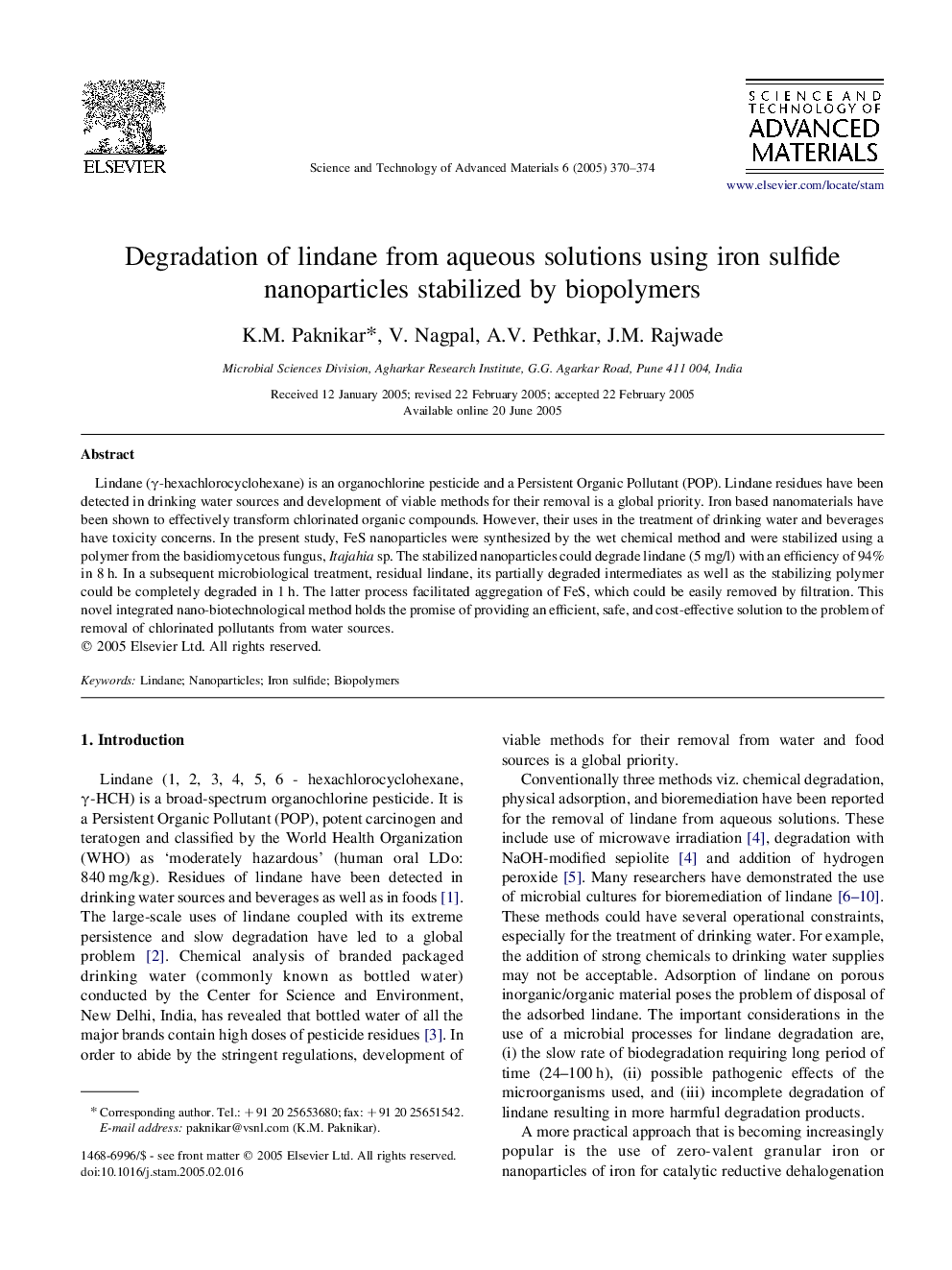| Article ID | Journal | Published Year | Pages | File Type |
|---|---|---|---|---|
| 9801414 | Science and Technology of Advanced Materials | 2005 | 5 Pages |
Abstract
Lindane (γ-hexachlorocyclohexane) is an organochlorine pesticide and a Persistent Organic Pollutant (POP). Lindane residues have been detected in drinking water sources and development of viable methods for their removal is a global priority. Iron based nanomaterials have been shown to effectively transform chlorinated organic compounds. However, their uses in the treatment of drinking water and beverages have toxicity concerns. In the present study, FeS nanoparticles were synthesized by the wet chemical method and were stabilized using a polymer from the basidiomycetous fungus, Itajahia sp. The stabilized nanoparticles could degrade lindane (5 mg/l) with an efficiency of 94% in 8 h. In a subsequent microbiological treatment, residual lindane, its partially degraded intermediates as well as the stabilizing polymer could be completely degraded in 1 h. The latter process facilitated aggregation of FeS, which could be easily removed by filtration. This novel integrated nano-biotechnological method holds the promise of providing an efficient, safe, and cost-effective solution to the problem of removal of chlorinated pollutants from water sources.
Related Topics
Physical Sciences and Engineering
Materials Science
Materials Science (General)
Authors
K.M. Paknikar, V. Nagpal, A.V. Pethkar, J.M. Rajwade,
